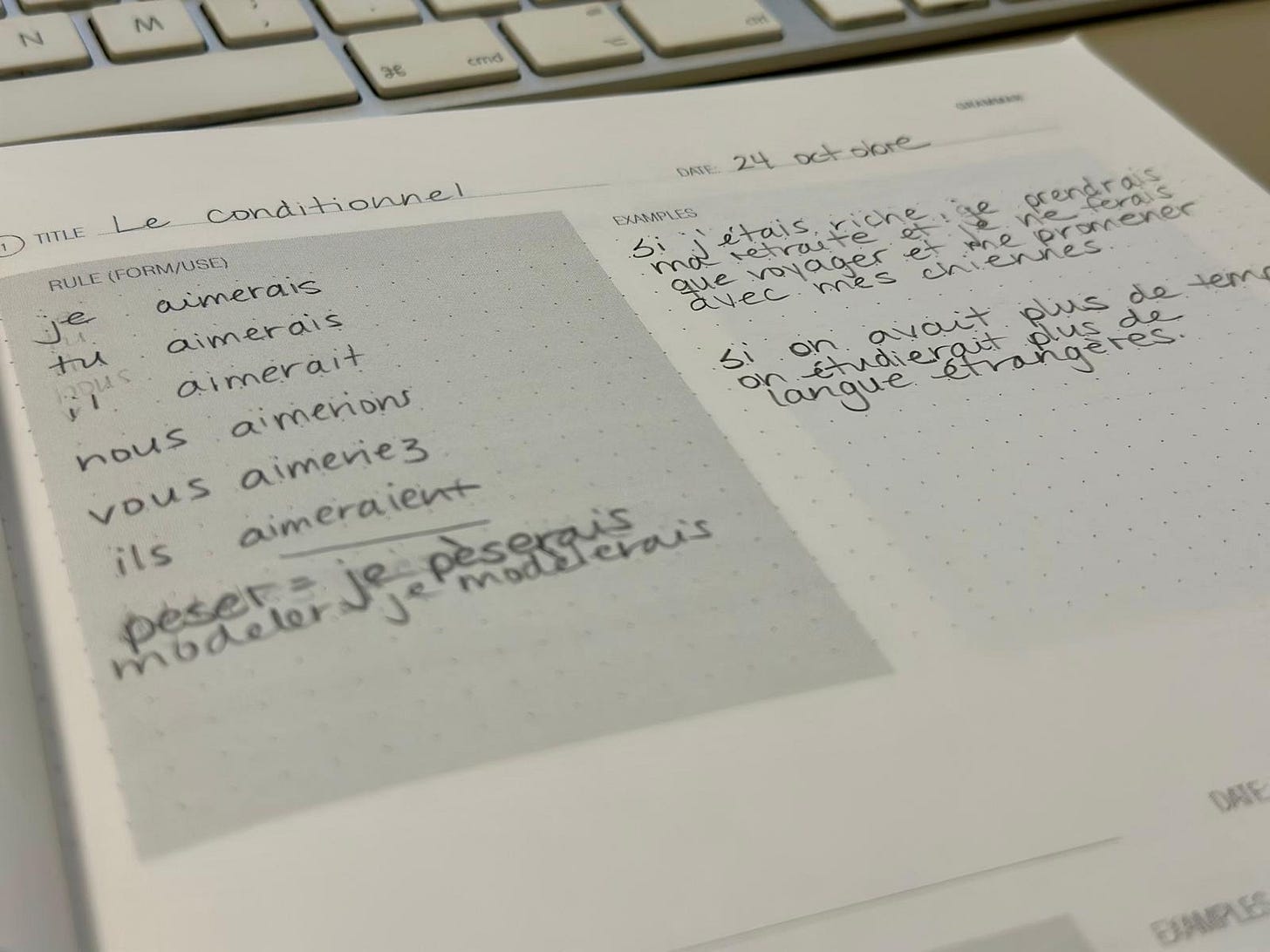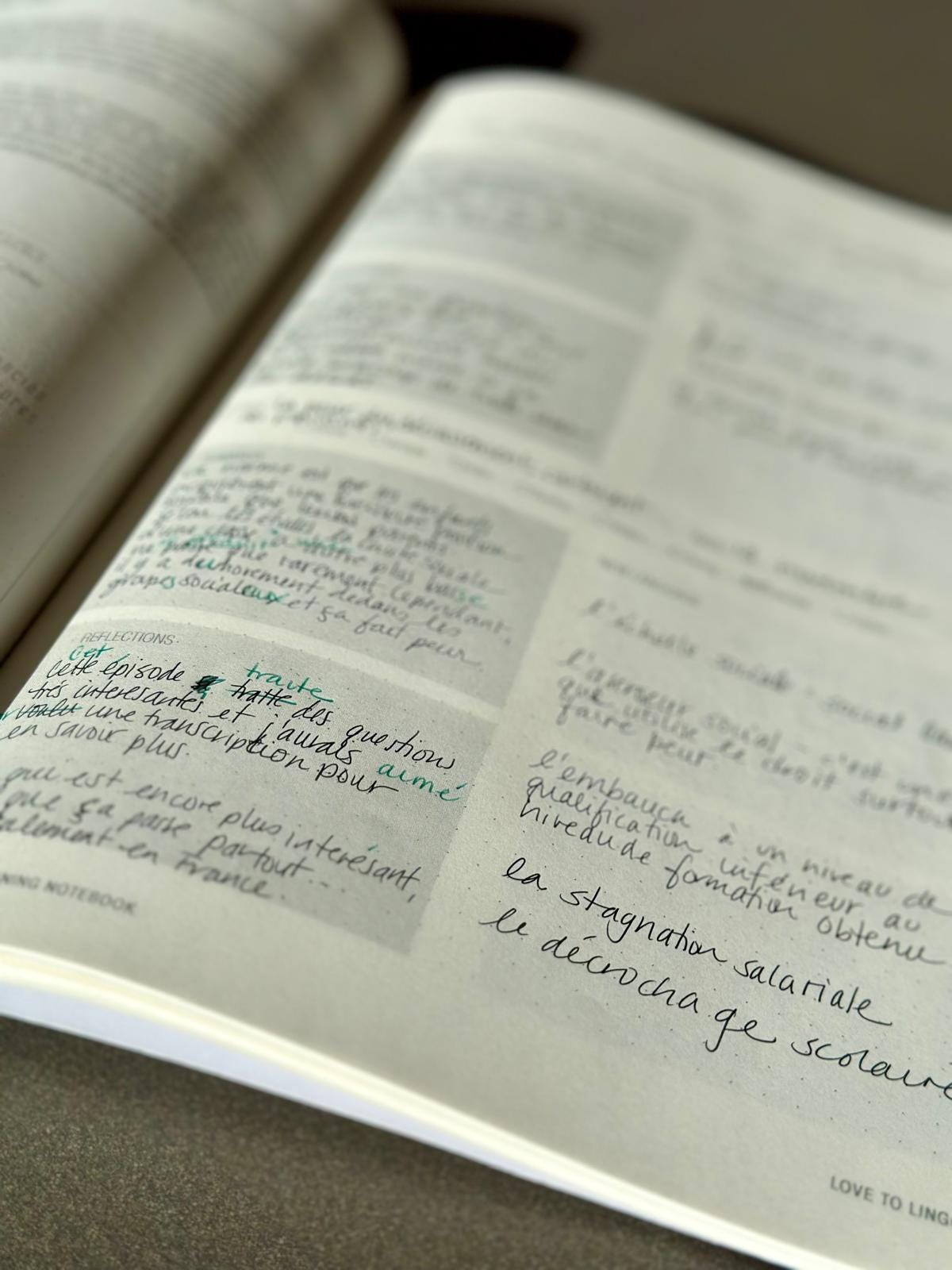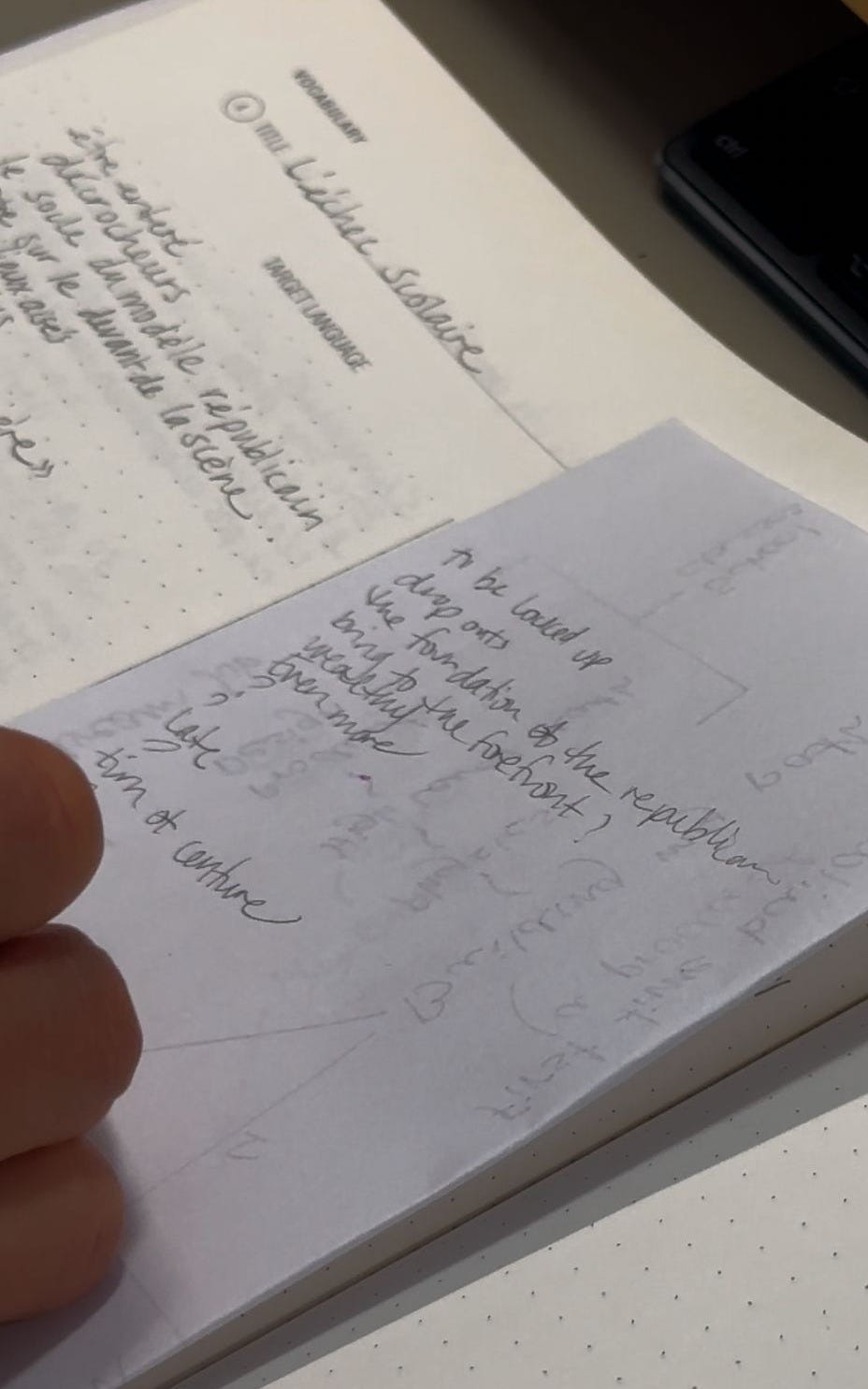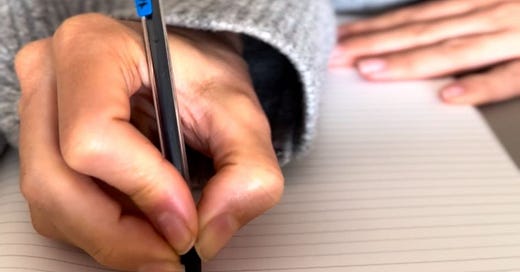My main source of income is as a Business English Coach. I work with mid- to upper-level managers who need to communicate in English for work. It’s a fascinating job that gives me insight into how people across industries and cultures are adapting to this moment of rapid change.
The number one thing my students complain about?
The unrelenting pressure to be more efficient. Do more. Do it faster.
In this environment, it’s no surprise that digital tools and generative AI are everywhere. And surprisingly (maybe), as their English teacher, I actually recommend they use tools like ChatGPT to tidy up reports or help respond to emails. These learners are capable and thoughtful. They ask questions when they’re unsure, and most are around C1 level. They’re not blindly handing over their communication.
They’re simply trying to make their workload manageable.
This post isn’t about what AI means for language learning (that one’s still brewing), but about something that might sound counterintuitive: choosing to make parts of your learning harder on purpose.
Rethinking Effort in Language Learning

Could making language learning too comfortable actually get in the way of real learning?
I may encourage my students to use AI for business emails. But I also ask them to write something long form, often by hand. A journal entry. A reflection. A summary of a podcast they listened to. Their vocabulary notes. Not because it's faster, but because it creates space for learning to actually happen.
What I’ve been doing differently
I’ve been deep in my own slow language learning experiment. Recently, I’ve even started printing articles so I could read them on paper instead of on a screen. (It does seem to help with concentration!)
This made me think more critically about when friction is helpful and when it just gets in the way.
When doing it the hard way helps

There are a few areas where slowing down and doing things by hand seems to make learning more effective.
Taking vocabulary and grammar notes
Writing in a journal
Reflecting in a language log
Doing the Ben Franklin technique
Tracking your habits or study goals on paper
Reviewing grammar and vocabulary
These are places where writing and reflecting help build long-term memory, deepen understanding, and improve fluency. Slowing down and making the mental effort when doing these types of activities is most likely worth it.
When less friction is better
Some things don’t need to be difficult. I believe your language learning routine should be as friction-free as possible. (That’s why I recommend creating a language learning ecosystem.) This includes:
Looking up words or grammar (I use ReadLang for looking up words.)
Finding and accessing materials and input
Managing your schedule
Organizing your routine
Efficiency here means you’ll have more time and energy for the parts of learning that really matter.
There’s research behind this
If this all sounds a bit old-fashioned, it’s worth noting that there’s evidence that writing things down by hand helps us learn more effectively.
Studies show that writing by hand improves memory and focus, and activates areas of the brain related to deeper learning and understanding. One study even found that students who took notes by hand outperformed those who used laptops, even when the laptop users had more complete not
es (Mueller & Oppenheimer, 2014).
In the context of language learning, this kind of friction helps us move past passive input and into active use.
Some ideas to try this week
If you’re curious about adding more intention and depth to your language routine, here are a few ways to experiment with useful friction:

Take your next set of vocabulary notes by hand
Write a short journal entry in your target language (I post prompts on Notes every Thursday if you’re short on idea.)
Summarize something you listened to or read
Try the Ben Franklin technique with a sentence
Set your goals on paper
Track your habits with a simple chart
One more thing
If you’re looking for structure to support this approach, I’ve created a language learning notebook that includes space for everything I mentioned above. But you don’t need anything fancy to get started. A blank page is enough.
I’d love to hear what you’re trying. Do you notice a difference when you write something by hand?
Thanks for reading, and happy language learning. 🤍






I find that actually having to use the language is also another way of doing it hard. For example I've had to train a few coworkers and intern students over the past year since I started working at a French school. Often times they are native French speakers and if I use a word in English, they're unable to understand me. Everytime I successfully communicate with them I know my French is improving 😊